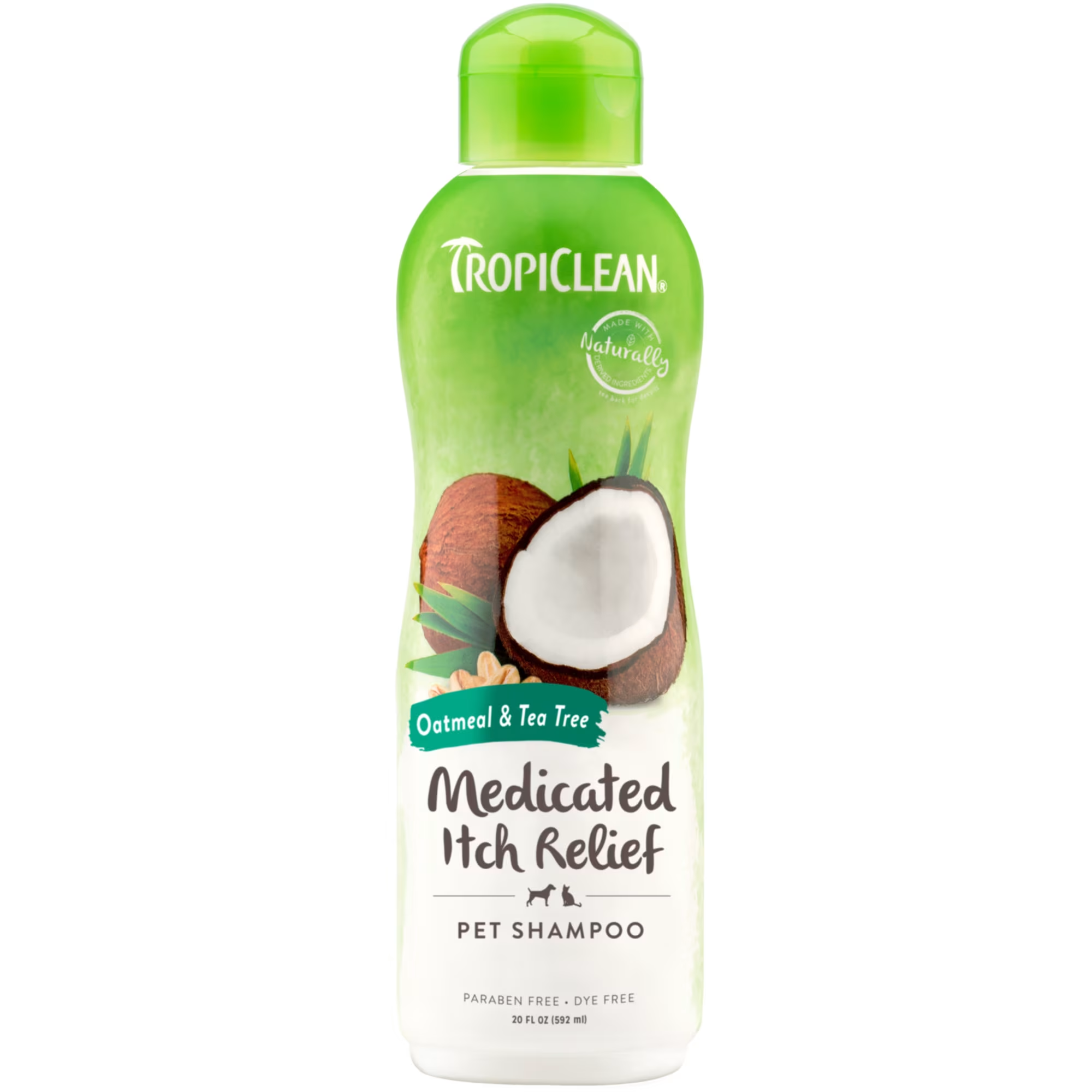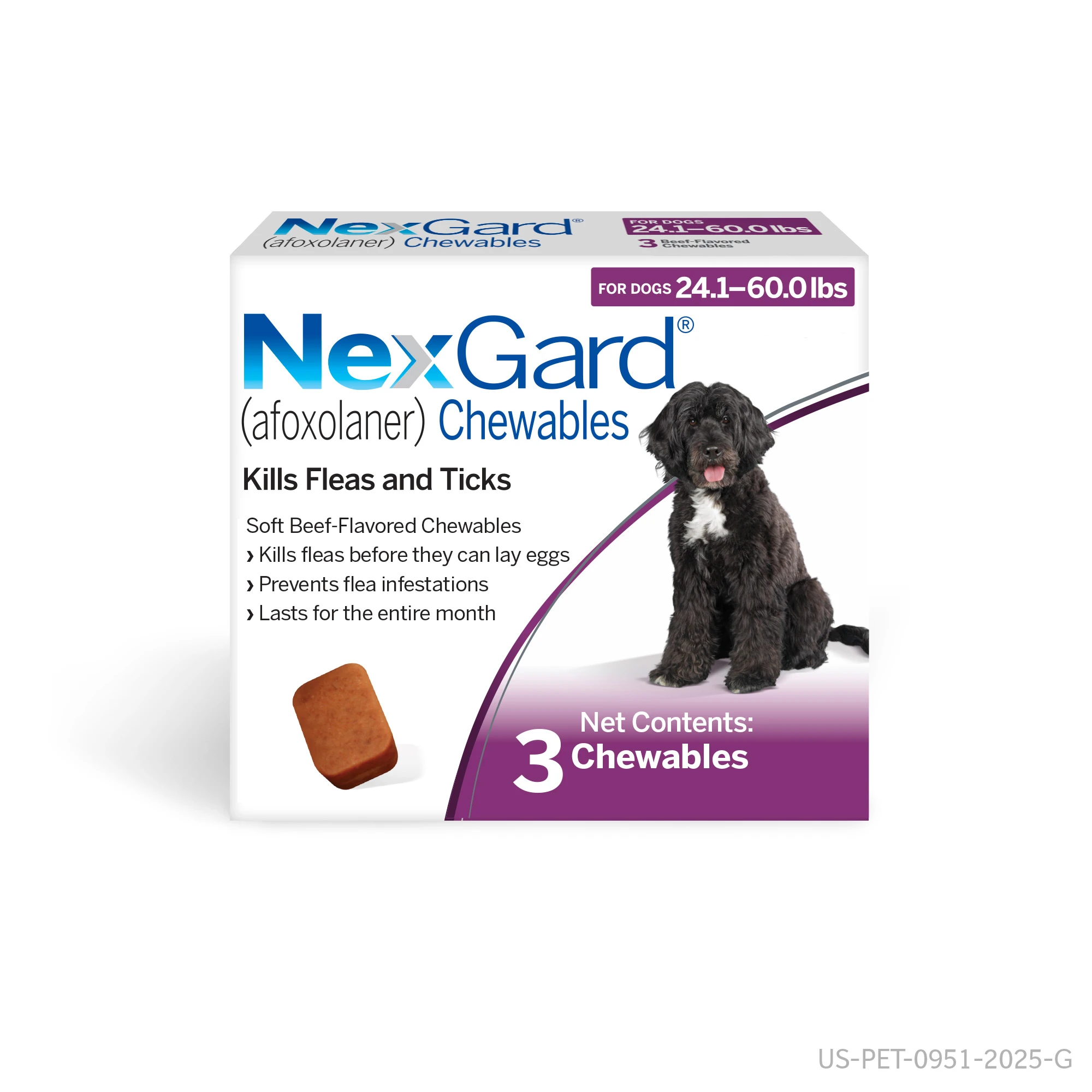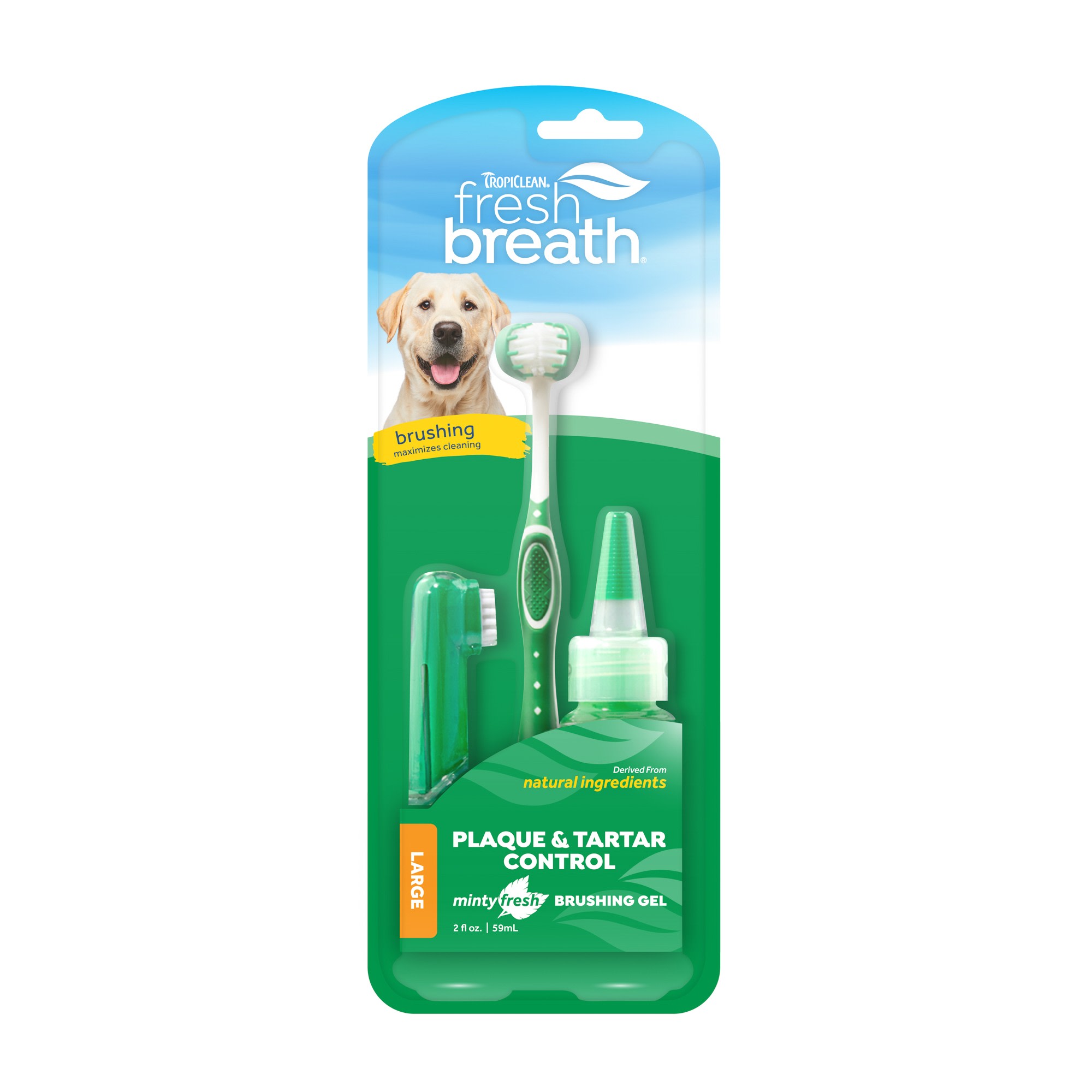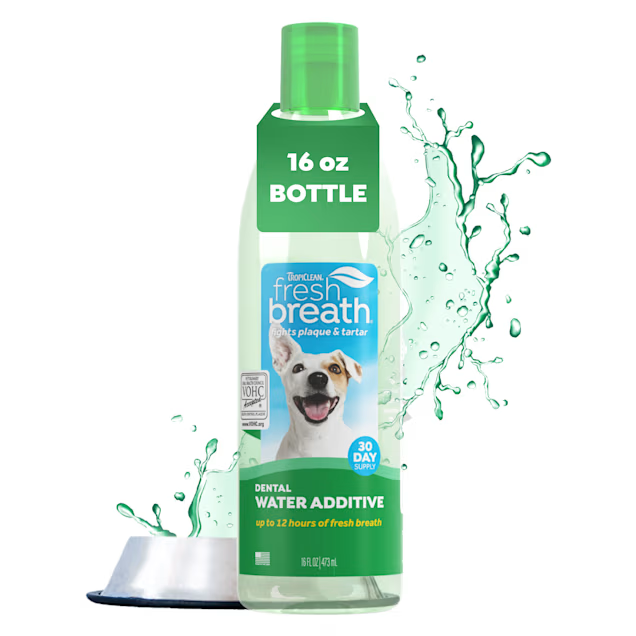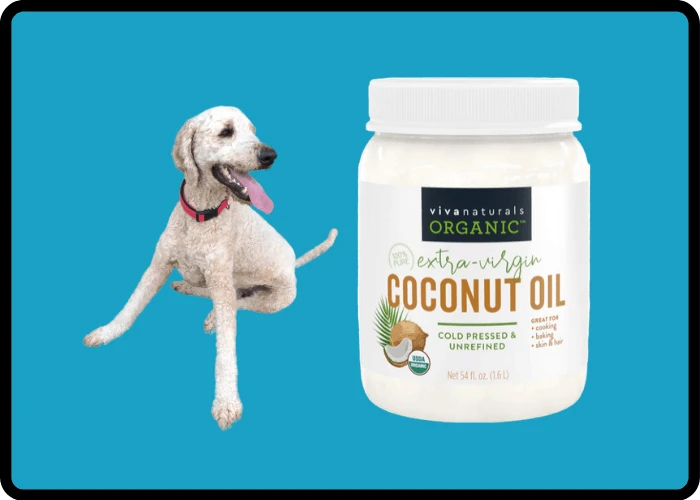
Coconut oil is an oil that is extracted from the meat of mature coconuts. This oil has become increasingly popular in recent years due to its many uses. I had no idea coconut oil was so beneficial until my friend recently told me about how she was using coconut oil to keep her hair shiny and healthy.
It turns out that the benefits of coconut oil aren’t just for humans to enjoy—many dog owners have been using this product to solve all sorts of health issues for their furry companions!
Best of all, coconut oil is inexpensive and easily available—I recommend Viva Naturals Organic Extra Virgin Coconut Oil. It’s one of the most affordable options available on Amazon. Don’t be fooled by dog-specific brands of coconut oil which are far more expensive—the human variety will do just fine as long as it’s 100% unrefined, virgin coconut oil.
A word of caution before we dive into all the potential uses of coconut oil for dog owners. While the benefits of coconut oil are numerous and real, they aren’t a substitute for seeking professional veterinary advice when your dog is severely sick or injured.
While it may be tempting to save money and attempt to treat these issues yourself naturally, your dog’s health is not worth pinching pennies over. That’s why I recommend that all responsible dog owners get a free, online pet insurance quote from Healthy Paws. They have plans that will cover up to 90% of your veterinary bills!
Additionally, not all commonly promoted uses of coconut oil for dogs are safe. In March of 2020, Dogs Naturally Magazine retracted their previous endorsement of giving your dog coconut oil orally due to the way it negatively affects your dog’s gut. The ASPCA has followed suit. While there are certainly counter-arguments to this, I’d rather be safe than sorry—especially if there are other viable alternatives for most uses.
If you’re a little confused, I don’t blame you! Let’s break it down and learn all about the benefits AND risks of coconut oil for dogs and how we can safely use it as pet owners to keep them happy and healthy!
Benefits of Coconut Oil for Dogs
1. Coconut Oil for Dog’s Skin Dryness / Eczema
Eczema is a condition where patches of skin become red, itchy, and inflamed. It can be an uncomfortable experience, and dogs can’t help but to scratch at it. Scratching does not help, but often makes symptoms worse.
To help, you may apply an even layer of coconut oil to the affected area for relief! Coconut oil has many moisturizing properties which help soothe the cracked and irritated skin caused by eczema. It also has antimicrobial properties which can help prevent against an infection caused by consistent scratching of the skin’s surface.
While it isn’t recommended to give coconut oil orally, you shouldn’t worry about your pup accidentally ingesting small amounts. That means that after you apply it to your dog’s skin, you don’t have to be concerned about them potentially licking a harmful substance. Even so, it’s recommended that you prevent them from touching the area for a minimum of 5-10 minutes so it has time to soak into the skin.
2. Coconut Oil for Yeast Infection in Dogs
A yeast infection is a type of fungal infection that can cause scaly, red skin. This is often accompanied by itching, excessive licking, swelling, warmth, and a foul odor. In dogs, yeast infections can occur virtually anywhere, but a common location is in their ears.
If you suspect your dog has a yeast infection, applying coconut oil may help. To treat a yeast infection with coconut oil, rub it in around in your hands until it changes from a solid into a paste-like consistency, then apply it to the affected area in an even layer. The amount needed depends on the size of the area, but a little goes a long way.
3. Dog Hot Spots Coconut Oil Treatment
Hot spots are one of many skin ailments that can impact dogs. Research has shown that, along with these other skin problems, coconut oil can help with hot spots. Apply an even layer on the affected area. It really doesn’t need to be a heaping amount, just enough so the area is covered. This should keep the area free from bacteria while also keeping it moisturized.
Healing wounds often become itchy and your dog scratching at a hot spot can cause a reopening of the wound or infection. Coconut oil can help prevent against these things.
4. Coconut Oil for Mange in Dogs
Mange is a microbial disease caused by parasitic mites. Coconut oil has been shown to help kill off these mites and prevent any new infections. Shampoos that have coconut oil listed as an ingredient can be used to help prevent mange.
Alternatively, you can lather your dog in 100% unrefined virgin coconut oil. Simply run your hands through your dog’s coat all the way down to the skin and massage the oil in. You should only need around one tablespoon of coconut oil depending on the size of your dog. It’s recommended that you initially start with an amount smaller than what you think you’ll need, as too much is difficult to get out and will cause a buildup of oils on your dog’s coat.
5. Coconut Oil for Dog’s Small Wounds
Coconut oil contains antibacterial properties which can help small cuts and scrapes heal faster. It also prevents these open wounds from getting infected. This works similarly to Neosporin, which speeds up the healing process and protects the wound from infection. The skin is the first barrier against infection, and once it is broken the risk of developing some sort of infection increases significantly. Coconut oil should help wounds close up quicker and prevent infections.
6. Coconut Oil for Dog’s Paws
Coconut oil for cracked dog paws is a lifesaver! Lots of dogs love romping around in the snow, but cold and icy conditions are not always the safest for your pup. The cold can cause dryness and cracking of the paw pads. Road salt can be even worse, causing your dog’s pads to get chemically burned.
A way to prevent this is applying a coconut-based paw balm to your pup’s paws before allowing them to go out into the cold. Similar to how the popular Musher’s Secret paw wax works, this mixture will keep your dog’s paws hydrated and protected from the cold and harmful road salt. There are many homemade recipes that can be found like this one from the AKC.
7. Dog Dry Nose Coconut Oil Treatment
A dog’s nose can often become dry, and trying to figure out how to help can be challenging because most substances you put on your dog’s nose they will likely end up licking off. Therefore, any remedy for a dry nose must also be safe to ingest. While it isn’t recommended to feed your dog coconut oil, them licking off the small amount that you apply topically isn’t anything to be worried about. Simply get a small amount on your finger and coat the nose with a thin layer.
8. Coconut Oil for Dog’s Coat Texture & Shine
There are a seemingly endless number of hair products for humans that have every use from increasing shine, to decreasing frizz, to decreasing damage, and so many more! Dogs don’t require as extensive of a hair care regimen, but when it’s been awhile since their last trip to the groomer, you may notice their coat looking a bit dull.
An easy way to keep your pup’s coat shiny and healthy is by applying coconut oil. Coconut oil contains lauric acid which has the unique ability to easily get inside of the hair shaft. This helps improve the overall health of your dog’s coat, not just its appearance.
The amount you use depends on the size of your dog. Around a teaspoon or so for a small dog and a tablespoon at most for a very large dog. If you use too much the coat may get greasy and can cause a buildup of oil. It’s best to start conservatively and add more later if necessary.
Once you have the coconut oil, lather it in your hands so it’s spread evenly. Run your fingers through your dog’s coat, being sure to massage all the way down to the skin.
9. Coconut Oil for Fleas on Dogs
The auric acid contained in coconut oil does more than just make your dog’s coat shine. In fact, it can kill and help repel fleas! For flea prevention, apply around one teaspoon to one tablespoon depending on your dog’s size. Brush your fingers through their fur, getting as much of their body as you can. Don’t just get the ends of the fur—be sure to massage it all the way through to the skin. Too much can cause a gloppy mess, so start with a smaller amount and work your way up if you feel you need more.
While coconut oil may help keep fleas away, we still recommend using a monthly flea and tick preventive such as Nexgard.
10. Coconut Oil For Matted Dog Hair
Some breeds, like most Poodle mixes, are more prone to matting than other breeds. If you notice matting happening in your dog’s fur, you can use coconut oil to help get it out. To do this, warm up some coconut oil, making sure that it’s not hot, but lukewarm. You can massage the coconut oil into the mat while trying to loosen it. Let it sit there for a bit and then gently try to brush it out.
11. Coconut Oil for Dog Shedding
If you hate constantly using a lint roller on your clothes, you may want to try coconut oil to help reduce your dog’s shedding. While genetics are the main role in the amount of shedding a dog does, another big cause is dry and irritated skin. Coconut oil helps with many skin irritations and helps promote an overall healthier skin and coat. The healthier your dog’s skin and coat are, the less shedding that is likely to occur. Obviously, this will not completely stop shedding in dogs, especially those that are prone to shedding excessively. However, it can help reduce it to a more manageable level.
To help reduce shedding, apply a teaspoon to a tablespoon of coconut oil, depending on your dog’s size, to the coat and skin. Let it sit for around five to ten minutes, then rinse the excess off with water before drying your dog with a towel. This can be done weekly to help minimize shedding.
12. Coconut Oil for Dog’s Ears: Preventing Wax Buildup
Coconut oil can even help prevent any uncomfortable wax buildup in your dog’s ears. To do this, get some coconut oil on a washcloth and gently rub the inside of your dog’s ear. You may need to rub the washcloth together first to get the coconut oil into a more paste-like texture. There should only be a thin coat covering it. Coconut oil can dissolve the ear wax. If done on a regular basis, this should prevent any excessive buildup of wax.
13. Coconut Oil for Ear Mites in Dogs
If there is dried blood or lesions surrounding the ear, there is a fair chance that it’s ear mites to blame. The antibacterial and antiviral aspects of coconut oil make it a valid option to get rid of ear mites. Additionally, coconut oil is fairly thick and can help trap the small eggs of ear mites, preventing any new ones from being born. To do this, take a small amount of coconut oil and spread it around the inside of your dog’s ear. You should continue to do this daily for a week. If no results are seen in around 3-4 days, you should contact a veterinarian.
Risks of Coconut Oil for Dogs
1. Coconut Oil for Dog Breath
At one time or another, we’ve all been on the receiving end of a big whiff of puppy breath. Needless to say, it’s typically not the most pleasant smell! Coconut oil offers a natural way to help keep your pup’s breath in check. While coconut oil has been used by pet parents to brush their dog’s teeth or coat a bone for chewing, it is no longer recommended to do this as your dog ingesting too much coconut oil can give them gut issues. Instead, try getting a dog toothbrushing kit and use it weekly.
If you need an extra boost to get rid of that bad breath after brushing, there are products that you can add to your dog’s water bowl to freshen their breath. Think of it as mouthwash for dogs!
2. Coconut Oil For Dog’s Teeth: Elimination of Plaque and Bacteria
While coconut oil has this benefit of helping to eliminate plaque and other bacteria in your dog’s mouth, it’s likely not worth the potential risks to your dog’s gut. Both the dog toothbrushing kit and dog mouthwash products not only freshen breath, but reduce plaque and tarter buildup as well!
3. Coconut Oil for Antioxidants in Dogs
Antioxidants are important for destroying free radicals—molecules with unpaired electrons. These free radicals are dangerous because they then steal electrons from other cells which damages them. Free radicals have been linked to cancer, diabetes, degenerative eye disease, inflammatory eye disease, and many more diseases that could decrease your pup’s quality of life. Antioxidants willingly give up electrons to free radicals so that they aren’t stolen from other cells. The more antioxidants your dog consumes, the fewer cells will have oxidative damage due to free radicals. While coconut oil is rich in antioxidants, there are plenty of other sources that aren’t as potentially detrimental to your dog’s gut.
Some antioxidant-rich human foods that are safe for dogs include apples, cranberries, beans, and cooked potatoes just to name a few.
4. Coconut Oil for Constipation in Dogs
While coconut used to be recommended by many as a method of helping your dog relieve constipation, there are safer alternatives that don’t have the associated risks that coconut oil does. Try giving your dog a spoonful or two of plain canned pumpkin or plain greek yogurt instead.
5. Coconut Oil for Dog’s Digestion
Previously, it was believed that coconut oil could help keep your dog’s gut functioning properly. Research has since shown that coconut oil actually isn’t great for your dog’s gut. In fact, it can irritate the gut lining and potentially cause leaky gut.
Coconut Oil for Puppies
One of the most common questions regarding coconut oil is how old does your pup need to be to safely use it? Luckily, coconut oil is a very safe substance when used properly! By the time you’re allowed to take your pup home, it’s most likely safe to use coconut oil topically. Remember to avoid giving your puppy coconut oil orally—however if they get a few licks they’ll likely be just fine. For the most part, coconut oil is just as safe for puppies as it is for adult dogs.
Best Coconut Oil for Dogs
While coconut oil is readily available at most grocery stores, you have to make sure you get the right type for it to be safe for your dog! Only ever use 100% unrefined, virgin coconut oil on your dog.
To get the best price, I choose to order my coconut oil from Amazon. As I mentioned earlier in the article, just because a brand of coconut oil is marketed specifically to dog owners, doesn’t mean it’s any better for your pup. Usually it’s the exact same thing with a higher price tag.
The brand I use and recommend is Viva Naturals Organic Extra Virgin Coconut Oil. It is one of the most affordable options available and has over 4,000 positive reviews!



